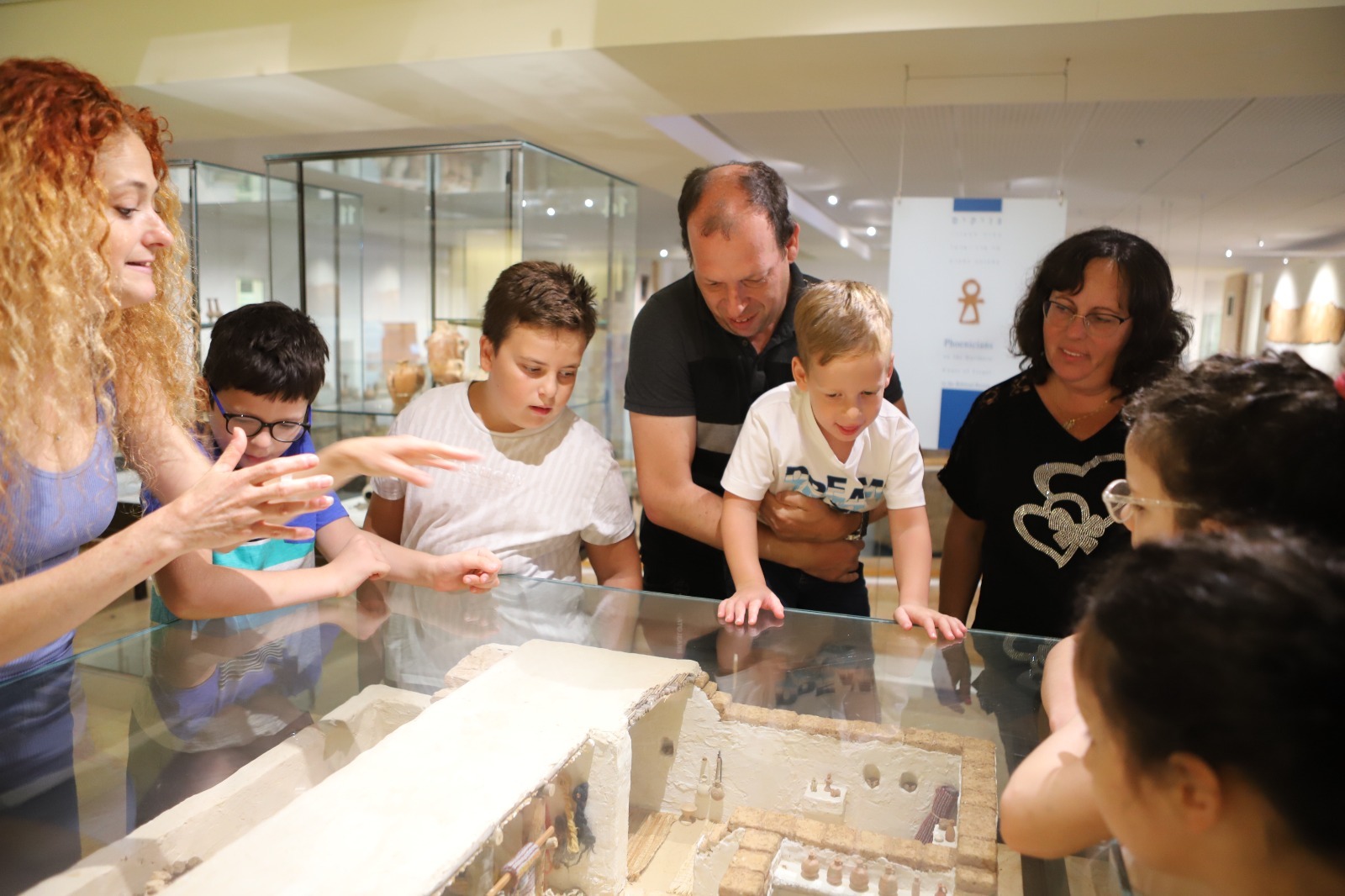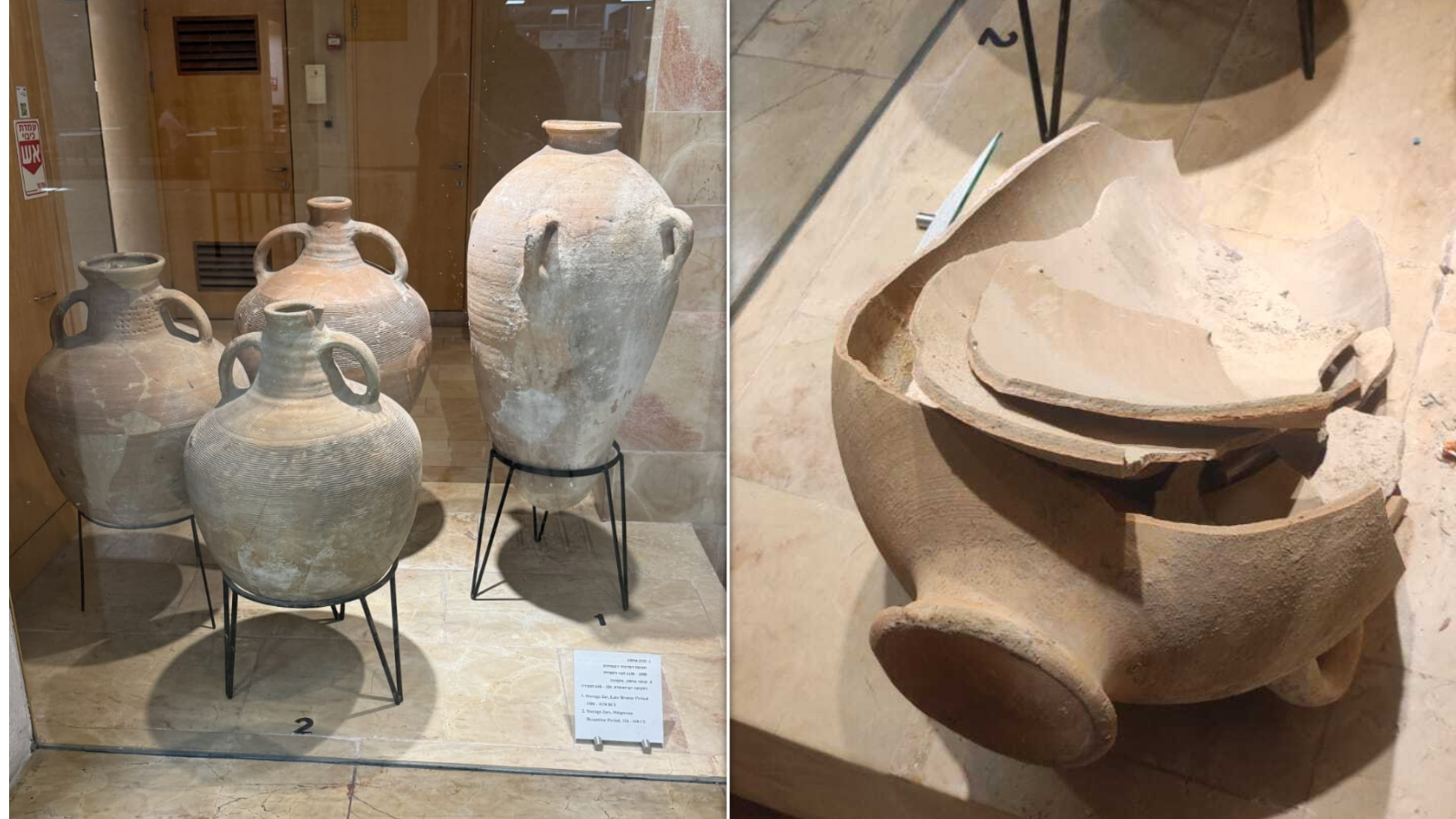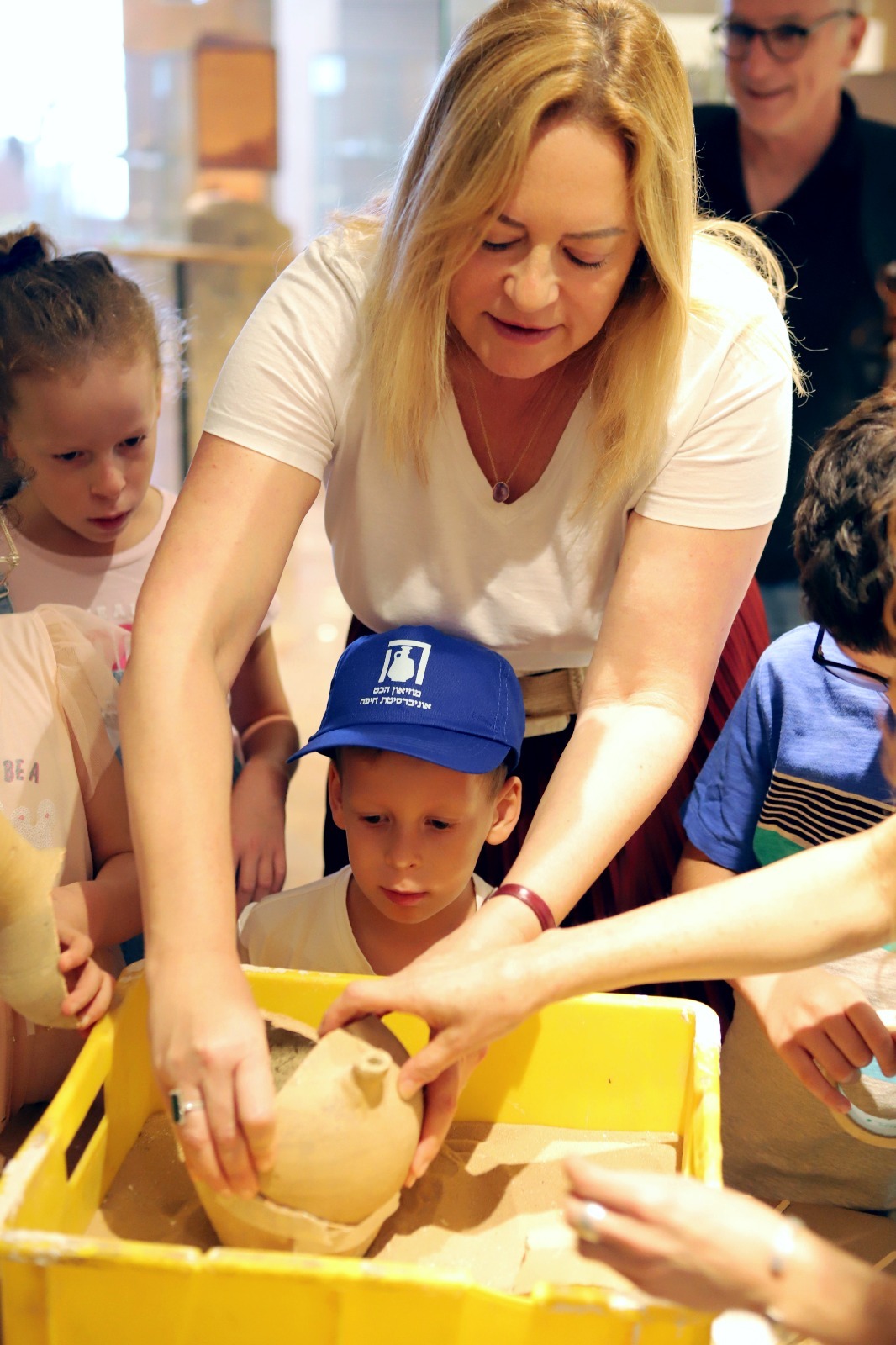Museum Shares Sweet Update After Boy Accidentally Smashes 3,500-Year-Old Jar
It’s not every day that someone accidentally breaks a museum’s 3,500-year-old artifact — or then gets invited back.
But that’s exactly what happened to the 4-year-old who was welcomed back to Israel’s Hecht Museum on Friday with a personal tour and hands-on lesson on archeological restoration, days after he smashed an ancient jar in an incident that made parents everywhere shudder.
Advertisement
“The family was extremely happy and ecstatic to visit Hecht Museum again,” Dr. Inbal Rivlin, the museum’s general director, told HuffPost in an email Friday when asked if there was any lingering unease during the reunion.
“The guided tour they received from the museum staff and the opportunity to experience the restoration kit first-hand will more than make up for the events of last week,” Rivlin added.

Hecht Museum, University of Haifa, Shay Levy
The 4-year-old, Ariel, was touring the museum with his family when he got too close to a jar dating to the Middle Bronze Age, causing it to topple, the museum previously reported.
Advertisement
The jar had been described as an “impressive find,” with Rivlin noting that “similar jars have been found in archaeological excavations, but most were found broken or incomplete.”

Hecht Museum
The museum said that a review of surveillance footage showed that the jar’s destruction was a total accident, and insisted, “we hold no animosity toward the child or his family.” Rather than punish him, the museum said, it wanted to use the moment to educate the child and others.
As part of his visit on Friday, Ariel and his family assembled and restored another small broken jar with a restoration kit provided by the museum.
Once the original broken jar is restored by a specialist ― a task that is expected to take one to two weeks ― it will go back on display at the museum’s entrance. Information documenting its restoration will be displayed nearby on a tablet device, Rivlin said.
Advertisement

Hecht Museum, University of Haifa, Shay Levy
Rivlin said the museum hasn’t yet decided whether to protect the jar with additional barriers. The museum has previously said that it tries, whenever possible, not to place barriers like glass around artifacts so that guests can have a clear view of them.
“At a time when reality sometimes appears to be difficult to comprehend, it is more important than ever to engage with culture, history, and values,” the museum said in its statement Friday. “While the saddening incident embodied in the figure of a child who, out of pure curiosity, shatters 3,500 years of history are not without irony, we are proud to have continued generating public interest in museums and their central role and importance in the community.”
As for Ariel, Rivlin said, she expects to see more of him in the future.
“As indicated by Ariel’s questions, inquiries, and interest during the visit, we may be dealing with Israel’s next leading archaeologist,” she said. “It is the beginning of a beautiful friendship.”

Comments are closed.